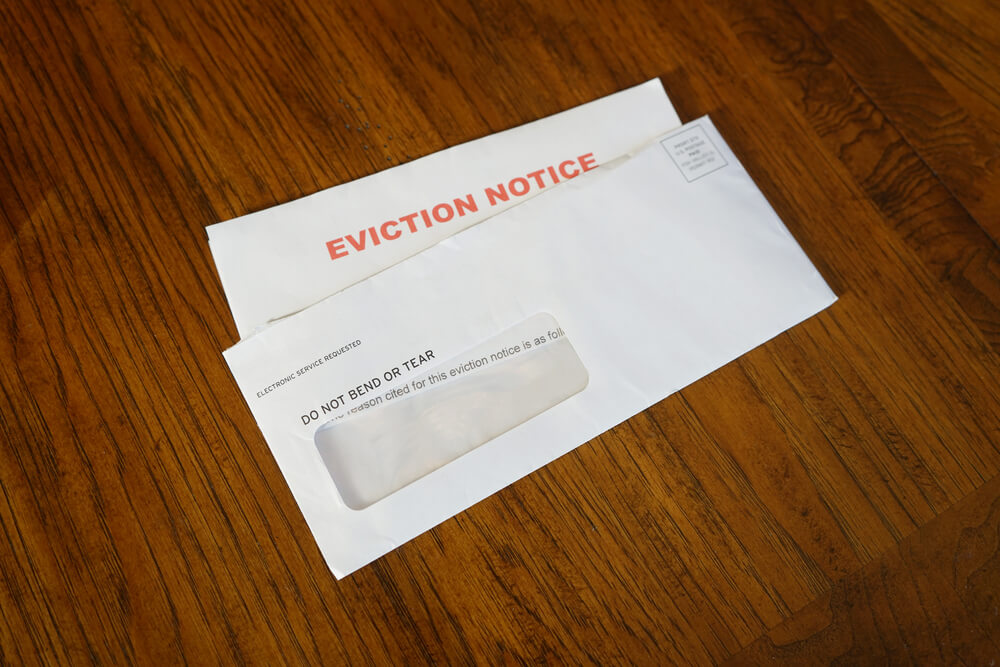
We are often asked about how Landlords can lawfully evict 'problem' tenants.The Housing Act 1988 as amended by the Housing Act 1996 lays down certain circumstances, known as grounds, under which a landlord may apply to court for possession of a property.
Following a Section 8 Notice, the grounds for possession of a property fall into two categories – mandatory and discretionary. The terms of the tenancy agreement must make provision for termination on the grounds set out in the Housing Act 1996. These grounds apply to all tenancies entered into after 15 January 1989.
In this blog we are taking a closer look at the discretionary grounds for possession.
Discretionary Possession Grounds
For discretionary possession grounds, the rules are slightly different. The court must take into account the claim made by the landlord and decide on the next steps. If the judges believes the claim is true, they may decide to grant the landlord an absolute order which includes a complete possession order. If they consider that the tenant cannot be held responsible for their breach of contract, they may give a suspended order which may include conditions that the landlord needs to fulfill.
Under discretionary grounds, the court will consider both dwellinghouses and other properties within their decision. There are eight different grounds that the court can refer to while making their decision.
Two of the most commonly referred to grounds are where the tenant has unpaid and excessively delayed rent, and where the tenant has been found guilty of illegal activity or causing nuisance.
Ground 9 - Suitable Alternative Accommodation
Under ground nine, a landlord can seek possession if suitable alternative accommodation is either already available for the tenant or will be available for them when the possession order takes effect.
Ground 10 - Unpaid Rent
Ground 10 may be used if the tenant has unpaid rent due on the date the possession proceedings were begun, and in some cases, on the date the Section 8 Notice was served.
Ground 11 - Persistent Delay in Paying Rent
Ground 11 can be used if the tenant has persistently delayed paying rent which has become lawfully due.
Ground 12 - Breach of Tenancy Obligations
Where a tenant has breached any obligation related to their tenancy that is not directly linked to non-payment of rent, this can be the basis of a possession claim.
Ground 13 – Deterioration Due to Waste, Neglect or Default
If the condition of the dwellinghouse or common parts of a building has deteriorated due to an act of waste, neglect or default committed by the tenant or anyone else living in the property, ground 13 can be used. This can also be used if the tenant has not taken proper steps to remove a lodger or sub-tenant whose behaviour has caused the deterioration.
Ground 14 – Anti-Social Behaviour
If the tenant or anyone living with them or visiting the property is causing a nuisance or annoyance to neighbouring properties, ground 14 can be used. It can also be used if the tenant or any of their lodgers has been found guilty of using the property for immoral or illegal activities.
Ground 15 – Deterioration of Furniture
If the condition of any furniture provided with the property has deteriorated due to ill-treatment by the tenant or those living with them, ground 15 can be used.
Ground 16 – Tenant Not in Employement of Landlord
Under ground 16, if the tenancy was granted due to the tenant’s employment with the landlord and the tenant is no longer in that employment, the landlord may seek possession.
Ground 17 – Tenancy Induced by False Statement
Where the landlord was induced to grant the tenancy by a false statement made knowingly or recklessly by the tenant or by a person acting on the tenant’s request, ground 17 can be used.
Multiple Grounds Can be Used
If more than one relevant ground applies to a case, the landlord may use multiple grounds in the possession proceedings. It is important to specify all applicable grounds on the possession application in order to prove the claim and ensure that if the tenant reduces the arrears below a specific sum, the claim can still be processed using alternative grounds.
In conclusion, as a landlord, it is important to have a full understanding of the grounds for possession to make sure that you are taking the right steps to protect your interests.
If you may need to issue a Section 8 Notice for any of the above we strongly recommend you get our Section 8 Notice Pack which has brilliant intructions and a number of other essential documents.
Two of the most commonly referred to grounds are where the tenant has unpaid and excessively delayed rent, and where the tenant has been found guilty of illegal activity or causing nuisance.
We can help you with two specific things today.
1. A Section 8 Notice pack with all the forms, instructions, coveirng letters and more.
Download Section 8 Notice Pack now
2. Legal Advice Helpine
Our Legal Advice Helpline where you can talk to a real lawyer over the phone about this, or any legal issue anytime.
It is the best kept secret in the Uk landlord world.
Basically, I have negotiated a deal for our website users to get the same use of the legal helpline that serves the largest legal insurers in the UK. So you get on a pay as you need basis what others only get when they have massive insurance polices!